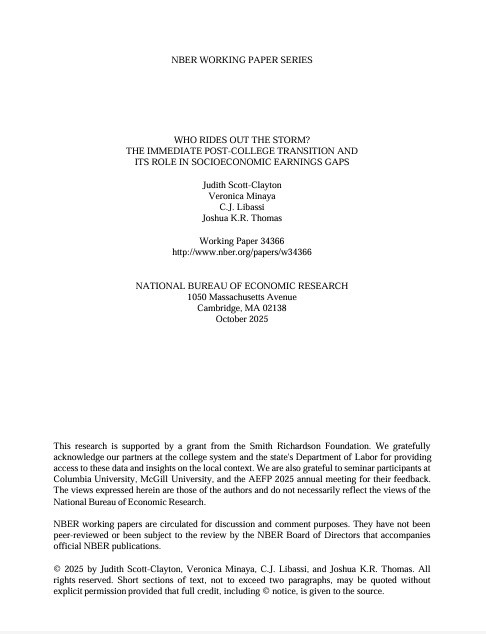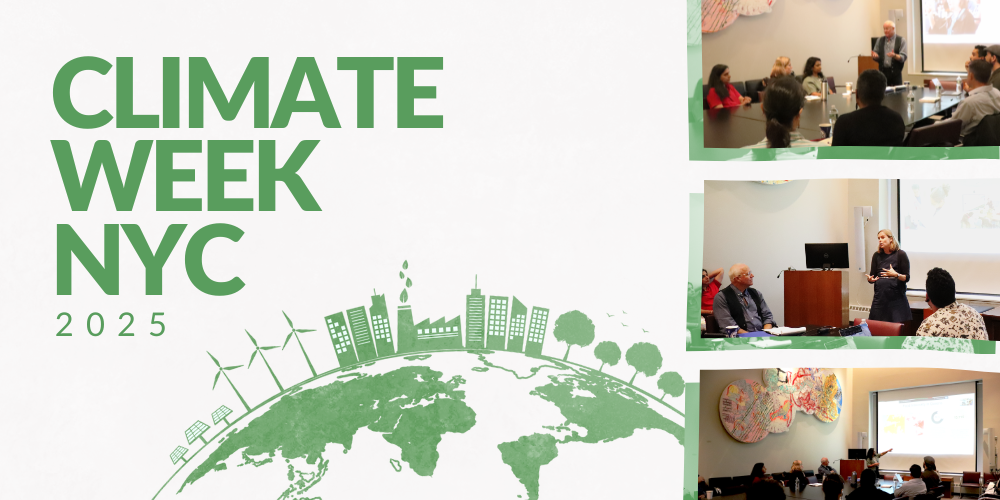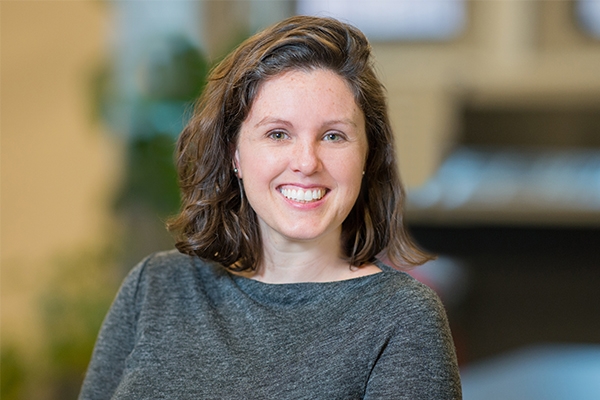Workforce Education
A community college credential should unlock access to meaningful, family-sustaining employment. CCRC examines workforce programs and partnerships to understand how colleges prepare students for a changing economy.
Fast Facts
Community colleges serve as the primary workforce training institution in the United States, offering associate degrees, credit and noncredit certificates, industry-recognized certifications, and other training.
Why We Study Workforce Education
Preparing students for the workforce is a central mission of community colleges and an important focus area for CCRC. As regional economies evolve and skill demands shift with new technologies, many community colleges are considering the next frontier of training programs in partnership with local employers. CCRC looks at how community colleges are meeting new technology and skill needs in industry and business, including the role of community colleges in preparing students for the green energy and climate resilience jobs that are integral to combatting climate change.
CCRC also examines community colleges’ role in their regional economies and their effectiveness in preparing students to join the labor force in skilled occupations. CCRC is working with the Virginia Community College System to evaluate a scholarship program to support students pursuing high-demand occupations in healthcare, information technology, skilled trades, and other fields. CCRC is also working with the Aspen Institute College Excellence Program and 10 colleges to ensure that community college programs lead to high-value opportunities in the workforce. The goal of this project, called Unlocking Opportunity, is to have thousands more community college students, including students of color and those from lower income backgrounds, complete programs that lead directly to jobs that pay a living wage or to efficient completion of a bachelor’s degree. CCRC’s policy lab, which operates in collaboration with the City University of New York, is developing more nuanced measures of post-college success and studying factors that predict and promote successful transitions from college to the labor force.

Featured Project
CCRC is working with the Virginia Community College System to improve its pandemic workforce recovery initiative, Get A Skill, Get A Job, Get Ahead (G3), which is built around a scholarship targeting low-income students in workforce programs in five high-demand fields. Visit the ARCC Network blog for more.
Community Colleges and the Emerging Green Economy: A Call to Action
CCRC released a Call to Action in July 2024 to support the work at community colleges to prepare workers for the green economy. In this video, Maggie P. Fay summarizes five insights from the project.
“Community and technical colleges are ideally positioned to train students for good jobs in the green economy for a number of reasons. One of the reasons is that it's estimated that over 70% of these new green jobs won't require a bachelor's degree.”
Maggie P. Fay
CCRC Senior Research Associate
What We Know About What Today’s Employers Want
CCRC researchers have conducted scores of interviews with colleges and employers to learn what skills companies are looking for. Here’s what we’ve learned:
- As computers and new technologies dominate daily work life, employers expect employees without bachelor’s degrees to have higher levels of digital literacy and to be comfortable working with technology and using data.
- Twenty-first century skills such as critical thinking and adaptability are increasingly essential for workers—in part because the jobs that require them are less subject to automation.
- Increased complexity in entry-level jobs contributes to the demand for workers with stronger math, writing, and English language skills.

Data and Tools on Workforce Programs and Post-College Outcomes
Explore data on how community colleges are preparing students for critical roles in the economy—including in construction, HVAC, electrical, natural resources, transportation, and other fields—and how these credentials align with labor market needs.
What programs are community college students completing, what do they lead to, and which groups are underrepresented in programs leading to stronger postgraduation outcomes? Explore your college or state data in this Tableau dashboard.
Further Reading
Workforce education
Our Workforce Education Experts
Read More
View all of our publications on the transition from college to career.










